10,000 Years of Strangeness: A Paranormal Primer for Ancient and Modern China
Part I: The Author's Own True Tales
Chapter 5: Wudang Mountain---武当山
Chapter 5: Wudang Mountain---武当山

Chapter 5-3: The Dao that Can Be Seen--道可道非常道

Previous Chapters 前章: Pt. 1: Chapter 1, Chapter 2, Chapter 3, Chapter 4, Chapter 5-1, Chapter 5-2
This is the hardest part to write because it requires a departure from the mundane. I wasn’t able to do it then, and I don’t think I can do it now. There was something hidden going on. There is always something hidden going on. Normally we don't look for it. Some of us never do. Some people look so much they just "happen to notice it” all the time. That day in Wudang I was neither looking nor noticing. So whether I can see it now and convey it is something else that remains to be seen.
Instead of being a journey forward from that moment, it is a journey backward from the present. It doesn't really matter because time travels both ways. The question is: can we?
The night before our departure for Wudang, I'd gone to the bus station to buy tickets. Even though no buses were running, there was still a dimly lit hall with a ticket booth that remained open. The woman didn't tell me the bus schedule, but whatever time I asked about, she said there was a bus. They must've had every bus in the province dedicated to the Xiangfan to Wudang route. Or I’d won some cosmic jackpot in synchronicity. Maybe the universe was trying to tell me from the start it's all just a matter of when I choose to get started. It's not so much finding the vehicle that's a problem, but the choice to get it on it.
We got the 9:30 bus. There's a number for ya. More messages from the universe? 9, 3, 0. 9+3+0=12. There's a journey around the Tarot! A fool and his empress get on a bus to go see a hermit, and end up getting hanged. Or do a hermit and empress get on a bus and turn into fools?
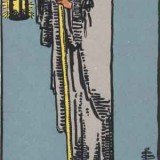


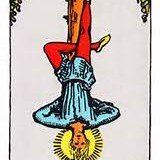
9 + 3 + 0 = 12
The bus dropped us at the entrance to the park. It's not just some mystical place in remote Hubei Province that people never go to in order to leave the monks alone or due to quaking fear of the power of their kung fu. It's a thriving and crowded tourist destination like any other. We were mobbed by touts looking to fill empty seats in their minivans up the mountain to the main trail head. But we had other plans.
We called Tian Liyang (田理阳), one of the Taoist masters that lives in the area that my doctor, Dr. Zhu, had referred us to. Dr. Zhu is a rather remarkable doctor. He works at the Guangzhou University Chinese Medicine Hospital in Shenzhen. He's head of the qigong massage department. His practice includes herbal treatments, acupuncture, massage, and general energetic work which is a by-product really of his years of practice and cultivation of qigong. He cured my mother of her sciatica, a feat which Western medicine has yet to match.
We called Tian Liyang on his cell phone and he came to meet us at the park entrance. Even 10 years ago Taoist monks had cell phones and email.

Wudang was lagging far behind the flow of tourists that flock there, so he took us to the one "good" restaurant in town for lunch. How a town that gets so many tourists is so devoid of restaurants is remarkable. It is also remarkable that a city the size and age of Wuhan is so devoid of restaurants, culture, hotels and transportation options. China is remarkable. It never ceases to amaze me. If you're asleep, this is the place to wake up, in the same way a bad roommate awakens you to a Bee Gees album after a night of hard drinking. If you are very, very lucky, it might be the way 4-year-olds jumping into your bed wake you up. Don't resist. You'll never get back to sleep anyway.
We talked about Master Tian's trips to Germany, Belgium and France where he goes to teach "Taoist culture." He didn’t speak any English. About the only Chinese I knew at the time was Taoist terminology from studying qigong; I didn’t know any of the words in between and around the Taoist terms. So Elva had to translate the whole time.
I noticed he was eating with us, so I asked him about bigu (辟谷). Bigu is a special state achieved by cultivators of the Dao. That sounds strange, doesn't it? "Cultivators of the Dao." How can the Dao be cultivated? It simply is. It always has been and always will be regardless of who or who doesn't "cultivate" it. But people do. Or think they do.

He told us he had one month of bigu. He didn't eat or drink for a month. He said he lost weight, but had lots of energy and was never hungry. He continued his workouts, and even got better. He could climb mountains and run and other people couldn't keep up with him. He'd never get tired, but his friends and colleagues would tire keeping up with him. I didn’t really understand why the bigu only lasted a month. Perhaps something was lost in translation. Maybe he just likes to eat.
The meeting felt very mysterious. I felt like I was there prematurely and not really ready to deal with this guy, but we kept on. He explained that he left his job as president of the Wudang Daoist Association in order to devote more time to teaching. The government built him a school where he now teaches wugong (武功), the local, and I guess correct, term for Wudang style kung fu.
The school was about 10 minutes outside of town, making it quiet and restful. Wudang, though very small, is a noisy and somewhat dirty and uncivilized place full of hawkers, touts, and rip-off artists, hardly reflecting the Taoist culture for which it is famous. Wudang is a den of vipers. For anyone who has trekked in rattlesnake country, you know what viper country is like. The difference between the local business people and rattlesnakes though is that rattlesnakes don't really want to bite you and warn you before they do.

Upon arriving at his school, he set up a few demonstrations of wugong with his students and explained that the chief difference between wugong and Shaolin kung fu is that with wugong you get better, quicker, and more powerful with age. Shaolin only works for the young and healthy. Eventually your skill and quickness decline. From what I saw of the 84-year-old Ren Farong, a Taoist master near Xi'an, his assessment seemed accurate. Ren Farong was energetic and spry. He said that Taoists are firmly rooted like trees. The Shaolin are strong, but lack roots. They can take a punch or a blow from a hammer or sword, but if you watch them, they move. The Taoist doesn't move.
We tried this. He lifted his leg, gently easing it towards his student and then released a powerful burst with his kick. His student flew back and busted his ass on the floor more than once during these demonstrations. Sometimes the other two students caught him.

I said to him, "How do I know you're not all acting?"
So he said, "You try."
I did. I assumed the fighting stance I was taught. He gave me the same sort of kick, a simple push kick. I don’t know if he held back or not, but my feet came up, moved back a few inches, and came back down again in the fighting stance. Aside from this I didn’t notice anything. "Just like Shaolin" he said. We did that a few times but he never sent my ass flying. It was always a dislodge and landing.
I wanted to try kicking him. This whole time I really wasn't into it though. It wasn't why I was there. In fact, I wasn’t even really sure why I was there or if I was wasting his time and mine. Then again, most of my best moments in life and greatest achievements came when I had no idea what I was doing.
I'd seen these kinds of demonstrations before, some better and more impressive than others, still others nothing more than showmanship. I was going along with it all and looking for some way to make it a productive meeting since I just spent three days trying to get there and had been planning it for a while. It was like flowing along a river till you got where you were going.
So I kicked him a few times. I went easy at first, getting a feel for it. His body would rock back, but his feet wouldn't move. I really started to lay into him with the most powerful kicks I could muster. We started with push kicks, but that really isn't my best kick, so I set my stance and came around with a powerful, rib-breaking, internal organ crushing hook kick. His body rocked back, but his feet didn’t move. And all this rocking back just seemed like histrionics put on only to emphasize his point.
"You see? Roots, like a tree. Only the Taoists have this. This is the first thing a Taoist must learn. We never teach how to attack. The next thing the student learns is how to absorb the attack. See this picture?" We went over to the bulletin board with photos of his adventures in Europe. "Here people are ramming me with a big log. My feet are still. Only my body is moving. In wugong you must learn this before you learn to fight. That is why people like the Shaolin better, because they learn to fight. Taoists are different. A lot of students leave because they don't learn to fight soon enough. Then after you can do all this, then we teach you how to counter an attack."
To become this:
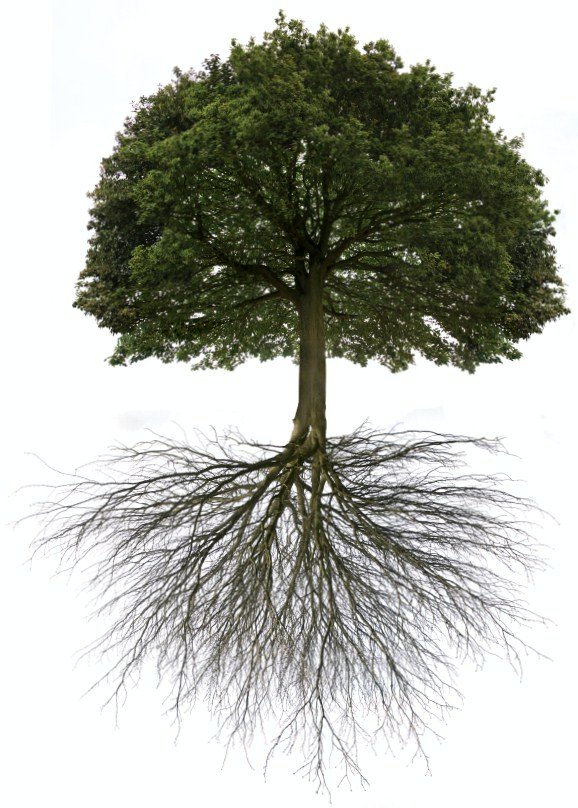
Do this:

Although there are some very big schools in Wudang, Master Tian would only take 8 students at a time. Judging by his website today, at some point he changed this policy.
Finally, I said to him that all these martial arts are very interesting and I have spent some time with the martial arts. My true interest, however, was immortality (不朽). I was schooled in qigong, neidan, and neidan gong and wanted to pursue that path.
At this point Elva stopped translating and asked me what neidan gong was, but the master stopped her and explained it in her native language. He dismissed his students and led us into a kind of reception room where we spent the next few hours talking about deep things and driving Elva crazy trying to translate things she's never even thought of or heard about, even in Chinese. He began by saying immortality is nonsense. "The longest-lived Taoist is Zhang San Feng (张三丰), the 13th Century founder and inventor of taiji quan, and he is only several hundred years old, and that is hardly immortal," he offered this as a matter-of-fact observation.
Only several hundred years old! Staggering for a human lifetime, and yet barely a blink in human history, not even half a blink in all Eternity.

We had to take a break to play with the puppy.
I questioned him about all the Taoist practices I'd learned. Then I surfed into Western alchemy (which he seemed to understand well) because I had spent 13 years doing it prior to learning Taoist alchemy (內丹术), which I think is superior. I went on and on about a lot of stuff that, in the end, is all really bullshit.
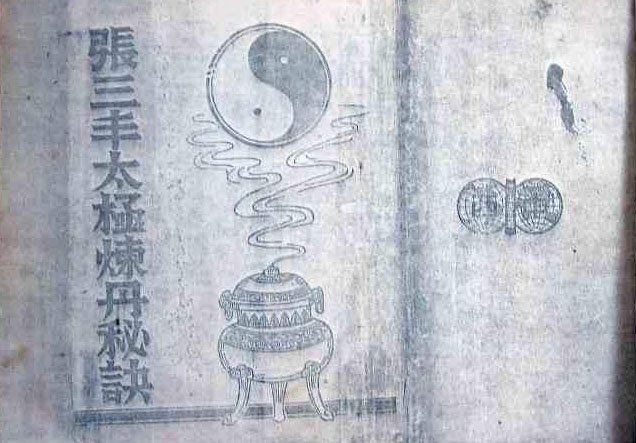
We humans often think that if we make a big enough pile of bullshit we can really impress people. The U.S. education system encourages and promotes this practice, and so we have a lot of salesmen, politicians and educators, but very few engineers and mystics.
You're probably all wondering what the hell we could've talked about for four hours and are annoyed that I'm not telling you. Surely there must be some pearls of wisdom in it all, and that Thorny must be a selfish bastard for keeping it to himself. Surely there must be something I can take away and show off to my New Age friends about how "I know a guy who went to Wudang Mountain in China and he says...."
It will not suffice you.
In the end, he told me what I already knew but refused to accept--the Dao has nothing to do with Taoism (道不是道教). Seek the Dao and let it unfold naturally. All that alchemy bullshit is just one way of doing it. Yes, that was the term he used. He said “gou pi (狗屁)” in Chinese, a term I was already familiar with on account of when people travel to a new country the first words they always learn are the dirty ones. So I guess you can say I lied to you earlier. I knew the Taoist terminology AND some dirty words. My eyes burst open, burst, I shot up straight and flashed a look at Elva who flashed back before returning to concentrating on Master Tian’s words. Gou pi literally means “dog fart” but is used the same way we use “bullshit” in English.
"You'll take each step when you're ready and not a moment before, he went on. The Dao cannot be forced. Immortality is unimportant. Only becoming Dao matters, and it doesn't matter how you do it. It's going to happen."
After this, Elva tried to talk me into staying for a while and studying with him, and I was thinking about it. But I was also thinking, "Why am I even thinking about this? He already told me what I came here to hear." Yet I could not stop wanting to stay longer. I was attached to the feelings I was supposed to have after all that journeying and looking forward to.
All that was left was to play on the mountain with Elva.
This is all I really wanted to do. I guess she was looking for something bigger. I guess she knew I was too, but in her translator's fatigue hadn't realized we'd already found it, shifted, or at least wanted to shift.
We clumsily asked about staying at his school or coming back another time and so forth, but it was very obvious the moment wanted to end. Elva couldn't believe it. After all that--the shitty hotel, the long bus rides, the callithump at the food street restaurant, the iron-bladdered bus driver--surely, there must be something more than this. How can he leave us hanging?
She obviously didn't notice Everything. And that is precisely what remains hidden from those who expect to see. The Dao that can be seen is not the true Dao, the Name that can be named is not the true Name—道可道非常道,名可名非常名.
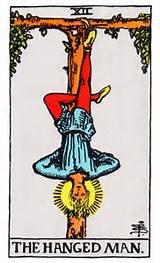
Excellent article, you sure get my upvote for this great work. Namaste :)
Thank you. I've been blessed with an interesting life.
如果这篇文章在谱以中文就更妙了
真的,但是我的普通话不够,啦---
hi, this Tian Liyang seems to be a very impressive and powerful person. I understand it was about 10 years ago. Did you see him again ? How old is he now (no more than a few hundred years, I suppose !!!) ?
LOL! Well, he was born in 1970. It's Zhang San Feng who's the multi-centenarian. So I'm told.
And no, I haven't see him since. I'd like to though now that the bullshit is out of the way.